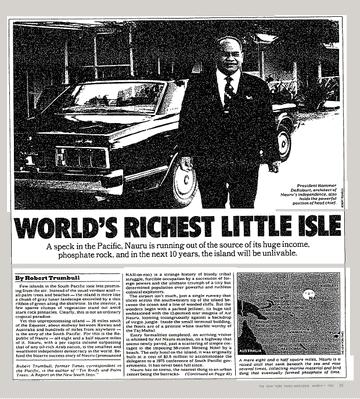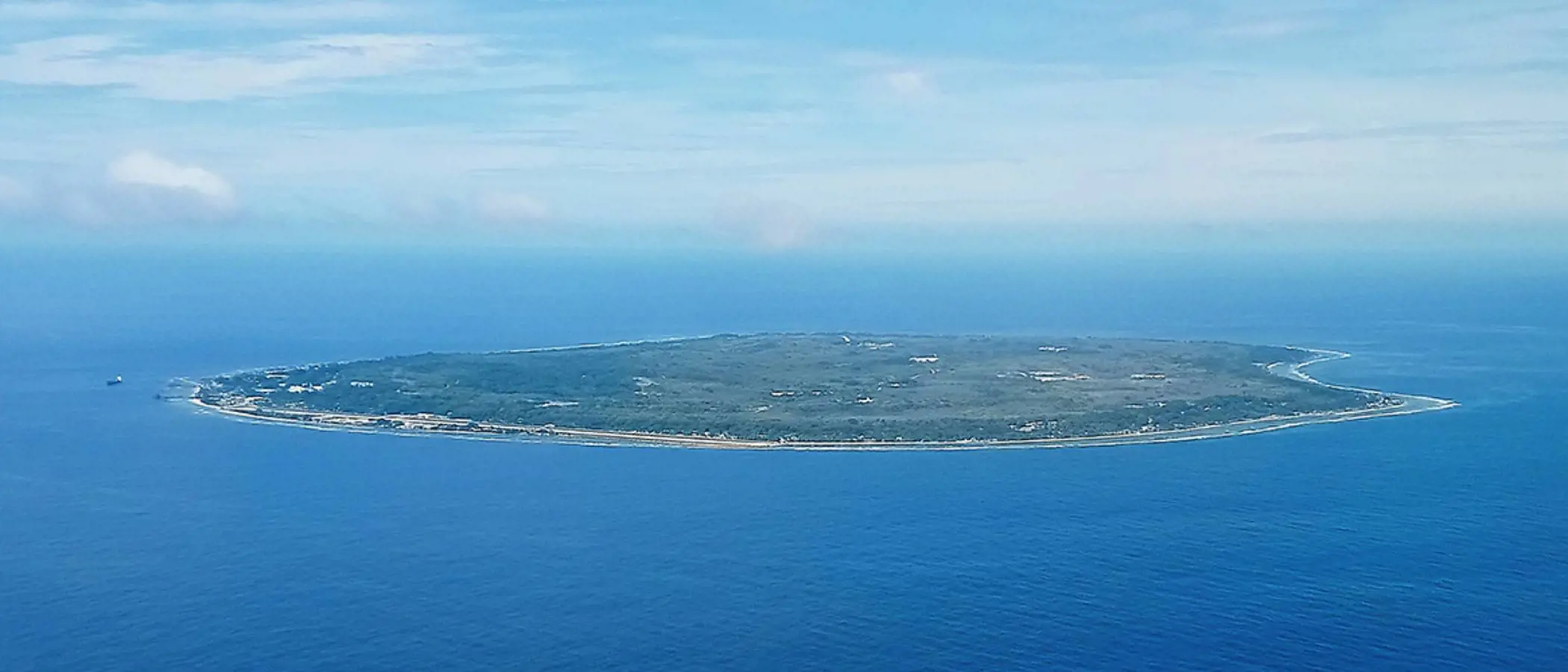The story of the “economic paradise” of Nauru shows perhaps better than any other, in microcosm, the ruin at the end of a linear economy.
In the 1970s, the tiny Pacific island of Nauru had the highest income per head in the world after Saudi Arabia. The money has come from intensive mining of its ample phosphate reserves, built up over countless years by the accumulation of seabird droppings and used as fertiliser. However, now most of it is gone – as have most of the seabirds that provided it, because the phosphate mining has ruined their habitat. The nation is heavily in debt, and relies on hand-outs from Australia. Meanwhile, because of the mining, the ecosystem for humans is equally bad: the island’s interior – 80% of the land mass – is uninhabitable.
Nauru shows two problems with the linear economy. On the one hand, the materials used to generate economic growth can run out. On the other hand, producing and consuming these materials can deplete the quality of the environment and put at risk the socio-economic future of a community. In seeking economic growth at all costs, Nauru exhausted its “natural capital”. It had, critics might say, been turned into world’s first disposable country.
Changing to a more circular economy requires a change in the way the world does business. This means moving away from the pure free market approach espoused by economists such as Milton Friedman, who regarded shareholder return as the overriding responsibility of corporate management, to an approach where companies must consider wider society. Companies are already responding efficiently to the new priority placed by governments and investors on maintaining a system that’s self-sustaining and leaves no lasting damage. Some people might indeed call this “sustainability”, but we prefer the term “circular economy” because it describes the process needed to keep the world in a healthy equilibrium.
-
Candriam Academy
The world’s first free-to-access accredited training platform for sustainable and responsible investing.
-
Circular economy: paradise restored
Nauru, once a paradise, is now 'Paradise Lost'. Can we save Earth?
